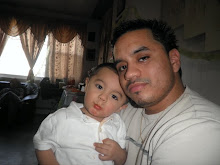
Growing up, I had no respect for language. Whenever I spoke, my sentences would usually start and end with some sort of curse word and my vocabulary was extremely limited. Of course, neither the fact that English was not my mother’s native language nor the fact that by my freshman year of high school I was cutting classes regularly, helped to combat my constricted English. But at the time, my limited use of language did not seem to matter; the people that were important could understand the things I had to say, namely my family and friends.
Now in my second year of college, I can see the error in my ways. I did not see the power of language when I was younger or understand the benefit of having a selection of words to choose from to share an idea. Now aware of the complexity of my thoughts, I can fully understand the importance of mastering English so that I can express my ideas clearly and thoughtfully.
Language is like an art, while words and pronunciation are like the brushes and colors available to the artist. In the same way an artist must choose the right size brush to meet the specific needs of every line, thick or thin, and the right blend of colors to bring their artwork to life, people must choose the right words and pronunciation so their audience can effectively understand what they say. Thus, I believe that the more access I have to words, the better I can express myself to a wide audience.
But then the questions are: how do I go about doing this? What are the best ways to expand my vocabulary? How do I interchange between dialects and pronunciations? How do I choose my approach in communication? And most important, do these questions really matter?
As I begin take this class, I hope to answer these questions. I hope to will learn why there are so many differences, different languages and the different dialects within those languages. Perhaps after learning about these concepts, I will be prepared with the resources to talk between people of different walks of life; whether I am speaking with a labor union worker from Milwaukee, a politician from Washington D.C. or an actor from Beverley Hills, we will be on the same page and get the most out of our conversation.
Now in my second year of college, I can see the error in my ways. I did not see the power of language when I was younger or understand the benefit of having a selection of words to choose from to share an idea. Now aware of the complexity of my thoughts, I can fully understand the importance of mastering English so that I can express my ideas clearly and thoughtfully.
Language is like an art, while words and pronunciation are like the brushes and colors available to the artist. In the same way an artist must choose the right size brush to meet the specific needs of every line, thick or thin, and the right blend of colors to bring their artwork to life, people must choose the right words and pronunciation so their audience can effectively understand what they say. Thus, I believe that the more access I have to words, the better I can express myself to a wide audience.
But then the questions are: how do I go about doing this? What are the best ways to expand my vocabulary? How do I interchange between dialects and pronunciations? How do I choose my approach in communication? And most important, do these questions really matter?
As I begin take this class, I hope to answer these questions. I hope to will learn why there are so many differences, different languages and the different dialects within those languages. Perhaps after learning about these concepts, I will be prepared with the resources to talk between people of different walks of life; whether I am speaking with a labor union worker from Milwaukee, a politician from Washington D.C. or an actor from Beverley Hills, we will be on the same page and get the most out of our conversation.

No comments:
Post a Comment